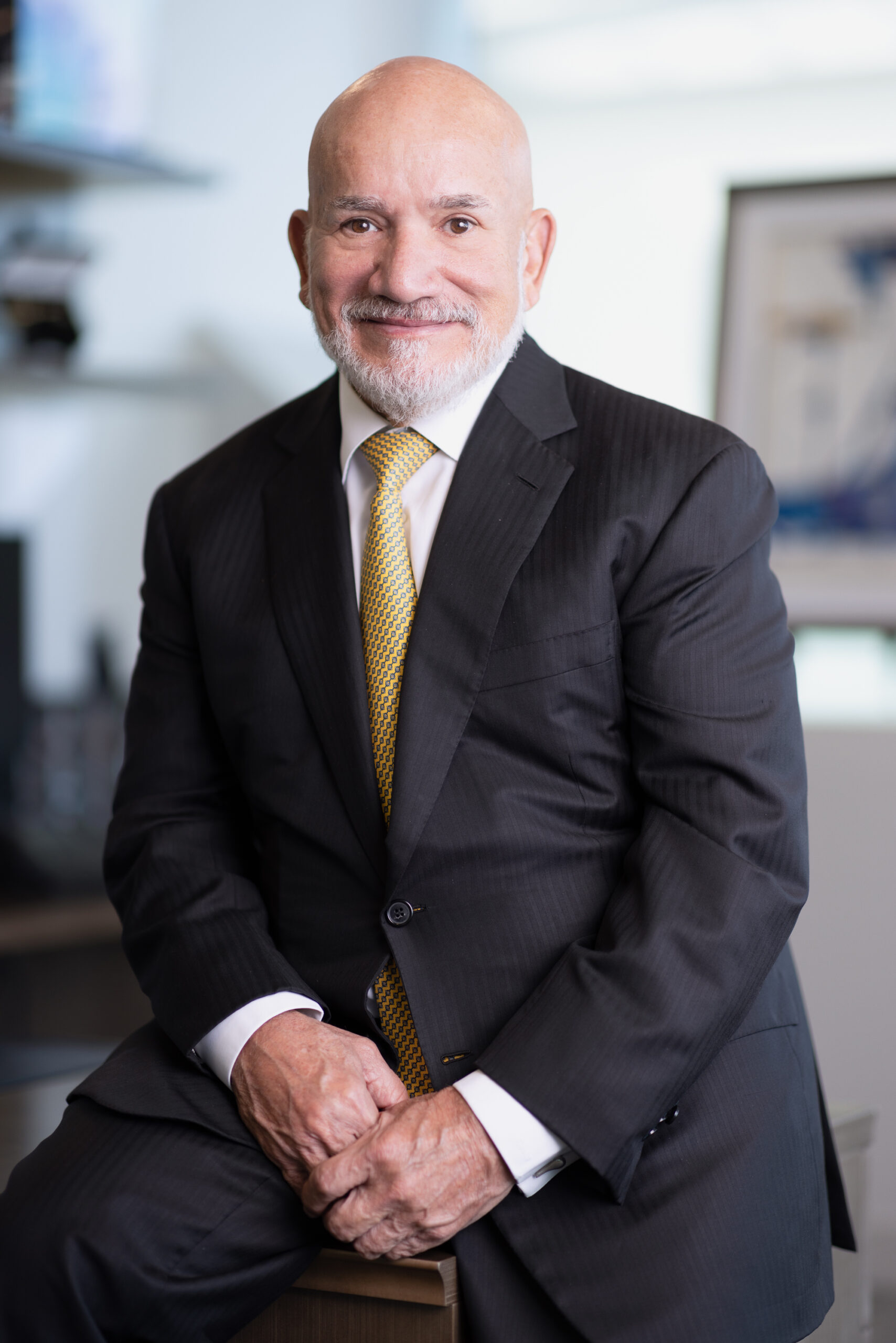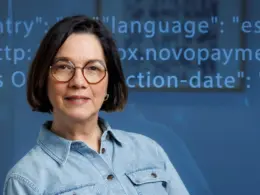MEDTECH AT eMERGE
Robotic surgery. New medicines for rare diseases. Predictive diagnostics. The world of healthcare is brimming with new technologies, and this year’s eMerge Americas tech conference raised the profile of medical innovation to encourage business in the fast-growing sector.
South Florida’s premier tech event, which drew 24,000 people from 50-plus countries in April, made healthcare a priority, building on partnerships with the Jackson Health System and the University of Miami Health System (called UHealth); Baptist Health and Florida International University (FIU); and Nicklaus Children’s Health System, among others. The cooperation featured large pavilions for each on the exhibit floor, plus panel discussions on such topics as high-tech trauma centers and organ transplants.
The focus comes amid strong investment in ventures that produce hardware, software, and tech services for healthcare. Last year, the medtech/healthtech sector ranked second for venture capital funding in South Florida, trailing only after financial tech. The sector received $362 million, or 16 percent of the $2.4 billion invested in South Florida ventures in 2023, says eMerge Americas CEO Melissa Medina.
“The medtech/healthtech sector is experiencing unprecedented growth and innovation, fueled by technological advancements and rising demand for healthcare solutions,” Medina told Global Miami Magazine. “By highlighting the sector at our conference, we can show how technology can continue to improve patient care and healthcare delivery.”

To be sure, health is not a new focus for eMerge, which launched its conference a decade ago to help make South Florida a tech hub. The first company to win the eMerge conference’s Startup Competition was Modernizing Medicine, which makes cloud-based software to run medical practices. That Boca Raton venture, now called Mod-Med, today employs more than 1,000 people and has raised at least $380 million to finance growth, reports show.
Last year’s eMerge conference also hosted a bustling University of Miami booth showcasing innovations by students, faculty, and researchers. Attendees gawked at the latest iteration of Harvey, a patient-mannequin that simulates some 50 heart and lung conditions. (see story pg. 34). This year’s eMerge hosted additional pavilions, including a return by UM in partnership with Formula 1 race cars, with an emphasis on advanced sports medicine. “The technology used in Formula 1 eventually comes out to the public. For instance, they have gloves the drivers use that measure their vital signs,” says Carlos Migoya, President and CEO for Jackson, which spans hospitals, urgent care, long-term care, and graduate medical education in its network.

The pavilion by FIU and Baptist Health featured interactive displays that allowed users to experience the handicaps of people with different neurologic disorders. On one display, participants first drew spirals on a touch screen under “normal” circumstances. Then a vibrating plate underneath gave them the experience of Parkinson’s with their next attempted spiral. Another memory kiosk simulated the confusion experienced by patients with Alzheimer’s.
One new pavilion was that of Nicklaus Children’s Health Systems, which offers world-class pediatric care at Nicklaus Children’s Hospital. Their pavilion allowed participants to experience the latest in Virtual Reality headsets, which the hospital uses to calm and relax children undergoing procedures.
“We have been leveraging VR as it pertains to the patient experience, using it as a distraction for pre-surgery, to reduce anxiety and perceived pain,” says Dr. Christina Potter, a psychologist and behavioral researcher who leads their VR program. “We have seen amazing results… [the children] wear it until they put on the [anesthesia] mask and go to sleep.” Nicklaus is also a leader in the use of digital innovation and AI to process and analyze health data. “Overall, Miami is increasingly a healthtech hub.”
In addition to the technology itself, what was different at this year’s eMerge was the attention to bringing together diverse players in health – entrepreneurs, investors, tech users, and others – to spur business in the sector. The push extended even into sports, with the Jackson/UHealth pavilion display of its Formula 1 race car; Jackson’s Ryder Trauma Center acts as the medical team for Formula 1 racing at Hard Rock Stadium, deploying such innovations as a telemedicine robot that can work with drivers or others in case of medical emergencies.
SOUTH FLORIDA’S STRENGTHS FOR MEDTECH/HEALTHTECH
South Florida has a strong base to develop healthtech/medtech. The area offers ample medical services and hospitals because of its rising population, including retirees. Baptist Health and other systems market services to patients in Latin America and the Caribbean, deploying new tech that may not be available in their homelands. Some universities – notably UMiami and FIU– have medical schools with active research arms. More generally, The Beacon Council, Miami Dade’s development group, targets the life-science and health sector for growth, recognizing the many jobs it creates, from technicians and doctors to administrators and cleaners, says Greg Horowitz, who leads the Council’s life-sciences push.
One weakness for healthtech has been local funding, but an influx of finance and tech companies since COVID hit in 2020 has closed part of that gap. New entrants are keen on health and investing, especially in such digital health solutions as remote monitoring of patients, Horowitz says. Indeed, there’s so much buzz around South Florida health now that overseas groups are visiting more frequently to explore opportunities, some recently arrived from Spain and the United Kingdom, he says.

“In February, we had an Austrian delegation from senior-care companies and technologies,” says Horowitz, a Beacon Council vice president. “We see healthtech as a definite growth area.”
Israel, dubbed “Startup Nation” for its innovative companies, stands out among early players in South Florida med tech. Perhaps the best known of its Miami ventures is Insightec, led by Dr. Maurice R. Ferre, son of Miami’s former mayor. The venture treats essential tremors and Parkinson’s disease without surgery, using focused ultrasound. In 2023, Insightec was recognized by BioFlorida, the state’s largest life-sciences network, as the BioFlorida company of the year. Based in Israel’s Haifa and in Miami, it has offices in Dallas, Shanghai and Tokyo and just received $200 million in new credit to expand.
Ferre also chairs Israeli medtech Momentis Surgical, formerly Memic Innovative Surgery, a robotic surgery company based in Tel Aviv, with a unit in Fort Lauderdale. Momentis has raised more than $100 million since its founding a decade ago to finance growth, according to news reports.

A DEEPER DIVE INTO HARDWARE, SOFTWARE, AND SERVICES
Venture capitalists divide opportunities in the sector into three areas based on their complexity and timeline for returns. Most complex is biotech, which includes drugs and other “small molecule” products regulated by the U.S. Food and Drug Administration. Biotech takes the longest to bring to market, regularly involving clinical trials. It includes such South Florida ventures as Coral Gables-based Catalyst Pharmaceuticals, which makes medicines for rare diseases and was BioFlorida’s 2022 winner.
Next comes medtech, which refers mainly to medical devices and hardware regulated by the FDA, such as surgical implants. Medtech may also refer to algorithms that offer predictive diagnostics to help doctors make medical decisions. Last and least complex comes healthtech, which is not FDA regulated, and encompasses such ventures as online platforms to hire health coaches.
Short-term, healthtech offers the greatest potential for growth in South Florida – but with a caveat, says Phillip Liu, a medical doctor who runs the healthcare practice for venture-studio firm Atomic and chairs the Beacon Council’s committee on healthcare and life sciences. New products and services need to be high-quality and able to scale, not just variations on existing wares or small-scale ventures, says Liu.

“Biotech can take decades to develop,” Liu says. “But when you think about the diversity of the Miami patient population, the size and connectivity of the South Florida market up to Orlando, the business friendliness of Florida’s public sector – all those are hidden gems that don’t exist everywhere. So, if you can prove high-quality healthtech works here, you show it can work in other places.”
Historically, South Florida has racked up few biotech or medtech successes on the scale of the almost $2 billion sale of Ferre-led Mako Surgical in 2013. Gains from that sale rippled into financing for Insightec, Momentis, and angel investments locally to spur the sector and jobs, says Liu.
“That’s why I’m very excited about what eMerge is doing in health,” says Liu. “They’re bringing together people from different partnerships to think about ways to create medical innovation.”












